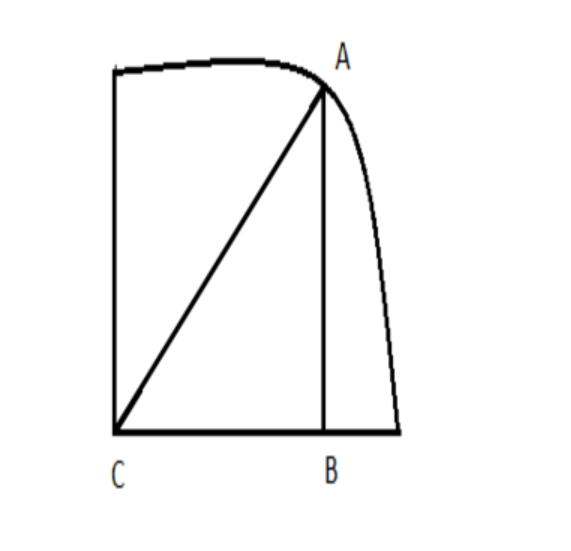Question
Question: If , then find the value of : A.\[\dfrac{{\sqrt {1 - {a^2} + a} }}{{\sqrt {1 - {a^2}} }}\] B.\[\...
If , then find the value of :
A.1−a21−a2+a
B.1−a21−a2+1
C.1−a2a(1−a2+1)
D.1−a21+1−a2
Solution
First, we have to define what the terms we need to solve the problem are.Each degree is then further divided into 60 minutes denoted by ‘, for example
10∘6′
Each minute is then further divided into 60 seconds denoted by “, for example
This can be pronounced as “Ten degrees six minutes thirty-two seconds”
Here we are given
To find the required answer, we need to find cos and tan in terms of a using
Formula to be used:

sin(90∘−θ)=cosθ
According to Pythagoras theorem
AB2+BC2=AC2
AC=hypotenuse
AB=perpendicular
BC=base
In trigonometry,
Let ∠ACB=θ
sin2θ+cos2θ=1
sinθ=HypotenusePerpendicular
cosθ=HypotenuseBase
tanθ=BasePerpendicular
tanθ=cosθsinθ
Complete answer:
It is given that
=HypotenusePerpendicular
Since,
AC=hypotenuse
AB=perpendicular
BC=base
And,
AB2+BC2=AC2
We can find the value of the base with this equation and place all the values:
BC2=AC2−AB2
BC=AC2−AB2
BC=1−a2
So the base is 1−a2
Now we can find cos value for that same angle θ, by applying the Pythagoras theorem for trigonometric identities
Since we know, the value of both sin and cos
tanθ=cosθsinθ
So, to find the value of tanθ
And also,
sin(90∘−θ)=cosθ
Make sure that the value of minute and second do not exceed 60.
Now we know the value of and
So adding both we get
Hence, the correct option is (C) 1−a2a(1−a2+1)
Note:
Using the given , we need to apply the Pythagoras theorem. Applying the theorem, we are able to find the value of the base, the perpendicular, and the hypotenuse.
The concept of angle: A circle is divided into 360 equal parts. It is known as the degree where there is a sign of negative sign and a degree greater than 360 in degree used in trigonometric terms, it is one of the measurement units in angle.
